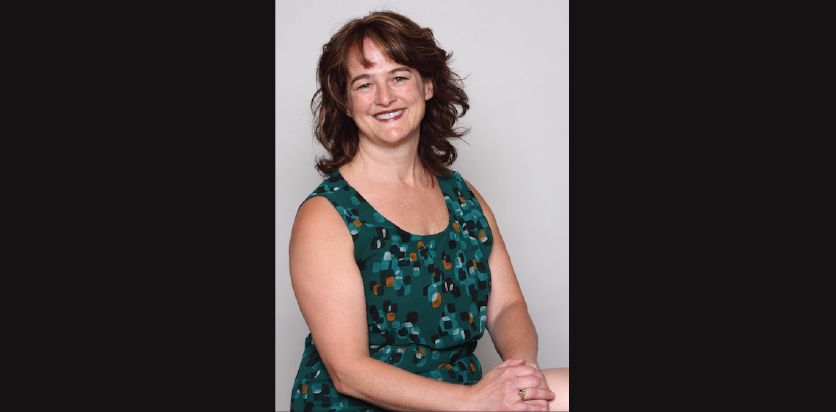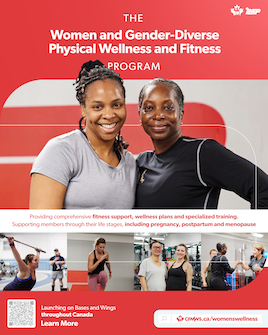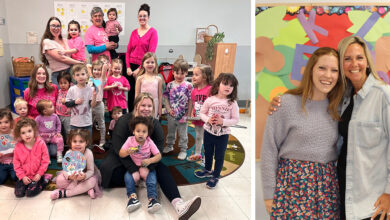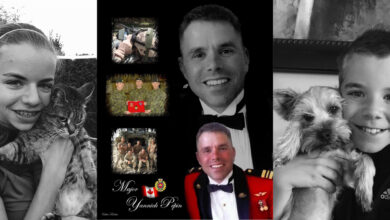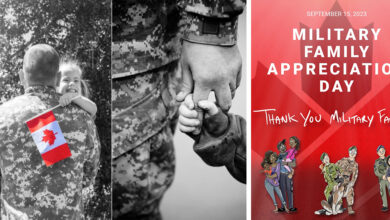CF Families
Military spouse creates a military community on-line with virtual programming
As one of the pioneers of bringing virtual programming to military families, Margaret MacKenzie knows that it truly takes a village to develop great programming that makes a difference in the lives of families.
“The village is taking the ball to bring quality information, resources, and workshop to all of our CAF, veteran and reservist families regardless of their posted location. It takes a village,” said MacKenzie.
MacKenzie is part of the military family herself. She’s been a military spouse for 26 years, and like all military spouses, she knows all-to-well the difficulties of starting over with each posting and the toll it can take on your career.
“I would start off with very basic two-week vacation, and then I would work my way up, and we’d be posted,” recalled MacKenzie.
Her husband’s career in the Royal Canadian Air Force has taken the family to twelve postings across the country and even internationally.
Currently, MacKenzies are posted to Germany, for the second time. The couple lives in the small town of Kalkar, where English is rarely spoken. This posting is giving MacKenzie a firsthand experience of what it is like to be living in an isolated place and how virtual programming is a god-sent.
“It’s beautiful, very small town and there are festivals and carnivals and parties everywhere we turn. It’s very isolating, though, in that you’ll go to the grocery store and you don’t speak the language. You know sometimes in Canada you can have small talk with people when you’re at the cashier, but you can’t do that here,’ noted MacKenzie.
MacKenzie has been involved with Military Family Resource Centres (MFRC) from the onset either by being on boards or actually working for the MFRC.
It was because of her experiences working with an MFRC that led her to virtual programming.
During her family’s first posting to Germany, MacKenzie had the opportunity to work as the remote executive director for an MFRC equivalent in Europe, an MFRC without walls. The team she was working with served 400 families in 16 countries. Her first step in this new role was to reach out to these families.
“These phone calls lasted half an hour because people were so excited, first of all, to speak English. But what we realized was that we need to do virtual programming,” said MacKenzie.
She spoke to her boss and was given the okay to train and gain the expertise in the world of virtual programming.
Initially, MacKenzie started with one or two presentations a month for families across Europe. By the time she left Germany, there were nearly 30 workshops or meetings a month.
What MacKenzie and her team were doing in Europe caught the eye of Col. Russell Mann, then director of Military Family Services and he asked her to bring the program to Canada.
It’s been three years since she brought the program to families in Canada and, so far, has trained more than 60 people across the country to deliver virtual programming to their constituents.
“So every CAF family has the opportunity to get the information, even if they’re not near a centre. So, it just enhances programs and services to our families, and that’s what it’s about. I’m so passionate about the families,” commented MacKenzie.
Today, MacKenzie works as the virtual program coordinator for the PEI MFRC. Through this platform she’s been able to bring presentations like featuring notable women from the military community for International Women’s Day; a virtual ceilidh; a presentation on a soldier’s experience in South Sudan, that attracted a class of cadets; an information session on scholarships and much more.
The sessions are always interactive, and MacKenzie reassures that attendees won’t be bored.
MacKenzie strongly believes that even if one person attends a session, it is a success.
”Because sometimes that one person is the one person struggling the most and needs that information the most,” noted MacKenzie.
She’s received an incredible amount of feedback including a handwritten letter sent to her after a virtual book club session.
“It said: ‘Margaret, I live in a remote location, and I’ve been here since July, and I hadn’t had the courage to get out and meet anybody; but, with this book club I could meet people, and laugh and connect with adult simulation from the comfort of my own computer.’ And she said thank you for that,” recalled MacKenzie.
To MacKenzie, the virtual programming arena is just another way to connect with and aide the military families she is so passionate about.
“You can’t buy that kind of connection for families, and it doesn’t take away from people coming into the centres it enhances it.
“It seems that every time we have a session, if we touch one, it’s a success, but with the recordings and everything else it’s a tremendous success,” said MacKenzie.
The Interactive Virtual program is rolling out across the country. To learn more connect with your local MFRC for an interactive demonstration of the virtual classroom tools.


